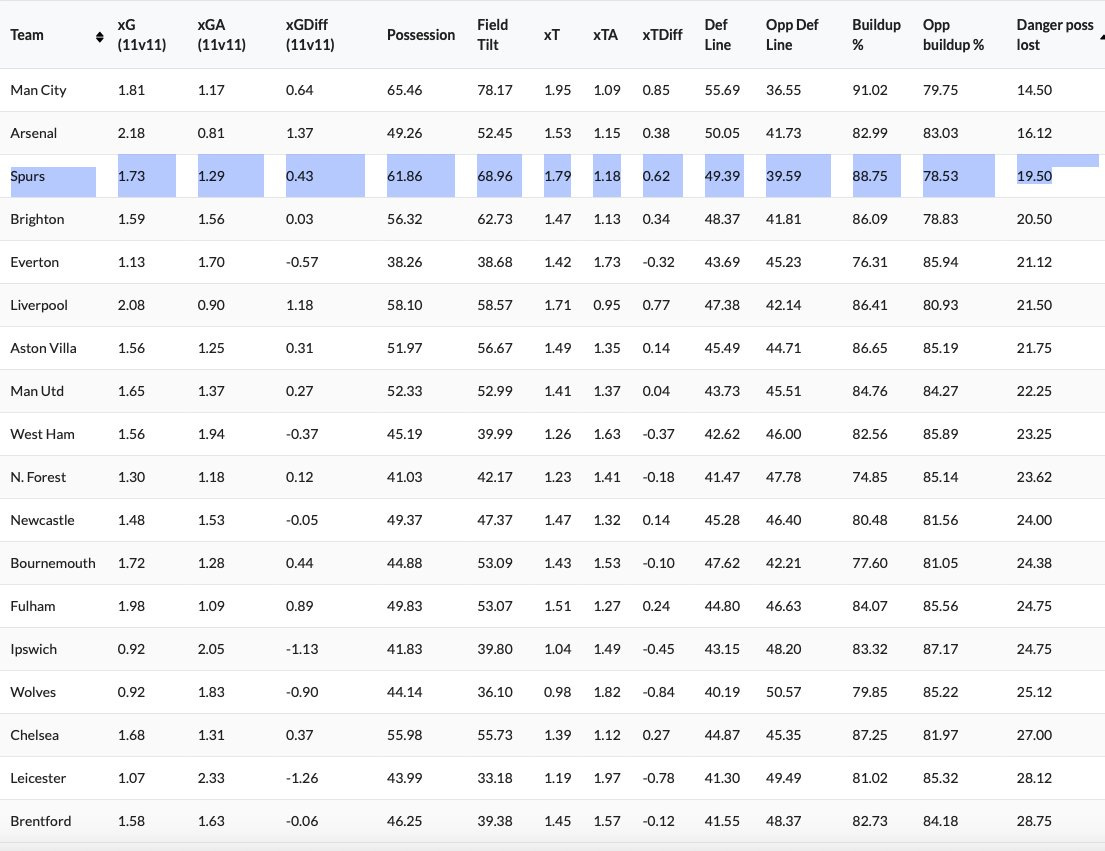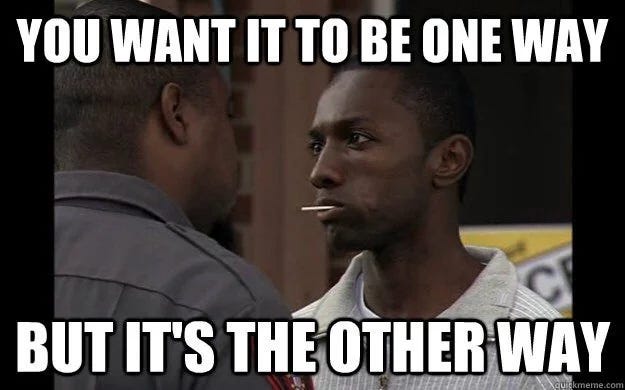
Even when Ange Postecoglou makes in-game tactical changes, the narrative that Spurs only play one way persists. It only makes sense to understand that narrative—as well as the reality of how Spurs play—in the context of how different it is from how we used to play.
Fans and pundits are used to Spurs playing a certain way: mainly defensive, reactive, and counterattacking. That’s how a string of managers set up with Spurs before Postecoglou took over. This means, in the simplest terms, there’s a mismatch in expectations between how Spurs used to play and how we play now.
A striking feature of how Spurs play now is that we’re extremely proactive, even overbearing. It’s not a coincidence that opponents have drawn red cards against us this season—Kudus’s red card this past weekend is a case in point—because of how frustrating it is to play against a side that’s constantly pressing, constantly driving at you, and won’t let you out of your own half, let alone let you have even superficial, non-threatening possession. As I’ve shown recently, Spurs have been extremely good both at keeping opponents away from our goal and swarming them when we give the ball away. Markstats’s danger of possession lost stat (lower number is better) measures how threatening opponents are when you give the ball away close to your own goal:
Spurs have also been great at forcing high turnovers with our relentless pressing, creating a lot of danger for our opponents when we win the ball high and put them right on the back foot. The opposition possession lost stat measures threat generated by turning the ball over high up the pitch, close to your opponent’s goal, i.e. how effective your press is as an attacking tool:
In short, whereas the likes of Arsenal and Newcastle are real bastards when it comes to milking the clock, booting the ball away on restarts, messing with the keeper on corners, and other ‘dark arts,’ Spurs are real bastards in terms of how we frustrate opponents by preventing them from playing how they want to play.
Postecoglou’s Spurs team has become one of the very few in the Premier League who dictate not only how we set up and play, but how our opponents set up and play against us. Our opponents have a choice about how to proceed tactically, but no matter what they do, they’re gonna end up doing the same things: getting picked apart when they step out, or getting bombarded when the sit deep.
Part of the reason it seems Postecoglou doesn’t make a lot of tactical changes is because we’re actually now the team who force others into tactical changes. It used to be the other way around, which taught Spurs fans and pundits to value ‘pragmatic’ and ‘flexible’ tactical approaches. And indeed there’s still a time and place for those qualities in a manager. But by and large we make fewer tactical changes because we’re successfully imposing ourselves on our opponents far more often than the reverse.
It’s the mismatch between the way it used to be and the way it is now that makes fans and pundits confused about why Spurs aren’t MacGyvering football matches anymore. To some this new way of playing looks like a lack of flexibility; but it’s really a consequence of how effective we are at imposing ourselves in games.
The way I see it, this is ultimately a good thing. It’s a step in the right direction in a league in which the margins between top 4-5 and seriously challenging for a title are extremely slim. But more broadly, I think our collective analysis will be better, more accurate, and more predictive once we start taking seriously that we’re the captains now, meaning we’re the ones opponents have to adjust to more often than not.







This is a good explanation. However I can think of another one, which arises from the fact that pundits snd chatter generally are decades behind and fail to take tactics nearly seriously enough.
I think you can say this season that, when defending, we have made some pretty clunky and costly mistakes. Leaving Vardy free against Leicester. Letting Bowen turn and cross for West Ham. Back in the day, these would have been indications of a leaky defence.
However, the way we play, as you have indicated, means that these sorts of situations only arise rarely. The end result is that we actually ship few goals.
That is, our entire way of playing, ridiculed as ludicrously open, is in fact brilliant at reducing the number of times the opposition create any threat at our end. Brilliant that is from a defensive point of view.